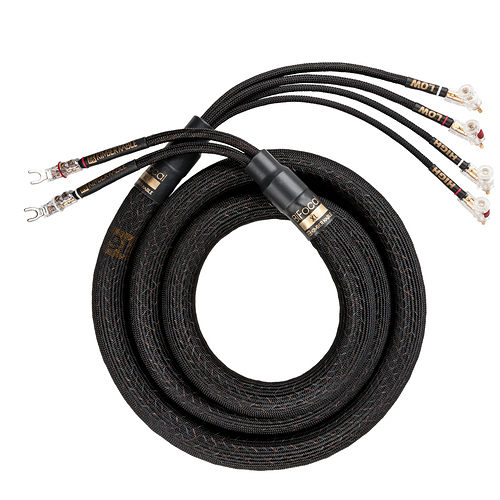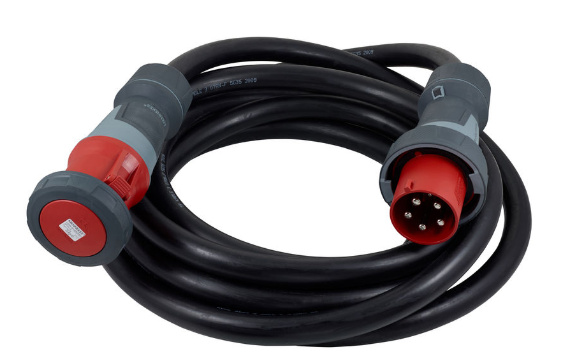Audiophile speaker cables have started to make me irrationally angry whenever I see someone using them. I just wached a you tube video of a guy proudly proclaim he has $10,000 in cables on his 2 ch system, I don’t understand how people still fall for this bullshit! What are they hearing that makes them think a cable can be worth $2500?
I saw a comment once of someone justifying them by talking about how audio exists in a quantum world and there’s so much we don’t know about that stuff yet and so it is entirely possible that he can hear the differences between cheap and extremely expensive cables and no one has the right to tell him otherwise. Says a lot a defense of these cables can be that delusional.
I think part of it is also the mental shortcut of “you get what you pay for”; price = quality. Some people can’t get past the notion that those expensive cables might not actually be better than incredibly cheap cables. Scammers take advantage of people all the time this way.
The markup on those cables are insane. Even with incredibly pure exotic material as the cable, it would not be near the price. And it’s hard to claim that the technology and research is worth the price.
For me in some occasions, I do think good quality cables can make a difference, but only on the half million dollar or “I could buy a small house or apartment” money systems. I have heard the difference with my own ears, but really on anything else it just isn’t worth it. And by good cables I mean 500 bucks max.
Overpriced stuff is nothing new. And idiots falling for obvious scams is nothing new either.
That said, the number of audiofools among the audiophiles is astonishingly high.
There are very expensive cables.
CEE 125 cables can easily reach 1000€, but those contain a lot of copper and are made to last.
There are also special coax cables for high frequency transmission.
For audio with its tame power levels and low frequencies (yes, even 25kHz is LOW), it makes no sense.
Example: Over a 4mm² conductor, you can get 40A (in burts more), so at 12V from the Amp, you got 480W to dump into your speakers. 4mm² cable costs arround 5€ per meter (= $5.52 per 3ft).
For a cable like that, it makes sense, I think he was mainly just complaining about charging that much for a cable that claims to make a sound difference. A speaker cable is nothing special and really doesn’t have to deal with anything out of the ordinary very often. Specialized NEMA & IEC & CEE cables are expensive because they are made for a certain specialized use case that more traditional cables could not typically stand.
I noted that in my first two sentences.
I also noted that arround $5.50 per 3ft is adequate money to spend on speaker cables.
Yeah, was just agreeing with you, sorry about the confusion
I love these cables. Worth every penny. ![]()
https://www.amazon.com/AmazonBasics-Speaker-Cable-Gold-Plated-Banana/dp/B07FDB34ZR/ref=sr_1_6?keywords=amazon+speaker+cable&qid=1571067248&sr=8-6
16 awg is a bit on the light side though unless they’re just a couple of feet long. Hearing magical cables is one thing - physical wire size is completely different. A smaller gauge cable literally puts the breaks on your amp due to resistance.
Personally don’t feel any issue with amperage going to my speakers from my amp. I rarely feel the need to push pass 12 on the dial, and that is with my DAC set to -12db. I’m not exactly powering monsters though…
I think what you are saying is fair and makes sense, though.
Well it’s not like I don’t believe in manufacturing special cable for applications that require it, Like in the Telecom industry. I use to make wiring harnesses for standalone ecu’s for cars, and I’d used a twisted pair Shielded ground wire for analog signals to prevent cross talk, because a car engine bay is an extremely noisy electrical environment. I’ve never seen a “audiophile” cable use shielded grounds for speaker wires, if they where doing that, I’d think it was unnecessary but it is based in science, so I’d be okay with that, because I could understand them wanting to prevent cross talk and possibly audible humming in the signal over long runs. But this idea of cable break-in and it making your speakers sound “warmer” is fucking ridiculous, a cable is not a mechanical device there is no break-in. I think they got this idea from the car world with engine break-in, which is a real thing because when your dealing with a freshly machined engine from the factory your knocking down micro burr’s in the cylinder walls left over from the honing process, that they usually don’t go back through and get rid off in mass production, but if your have an engine built by a professional race engine builder for instance there is no break-in other than doing a oil change to flush out machining oil and leftover metal inside the block After being freshly machined. There is no seating of the rings on a race engine other than the initial startup of the engine, because they will go through and make the finish glass smooth on the cylinder walls and test this with a roughness gauge that measures down to 0.01 microns, or one millionth of a meter.
Agree, 12 gauge wire or four pair 14 gauge speaker wire twisted together is preferable.
Wire gage of the cable has more to do with how long your run is, a 6ft 16 gage cable will do just fine.
That’s why I specifically mentioned length. ![]()
IMO some really good cheap speaker cable
Really nice stuff for the price. I’m sure you could do cheaper or higher quality on your own, but for the package its pretty nice stuff
Pretty sure sound changes come from cables with obscure impedance or something that changes the frequency response by messing with resistance to make a perceived sound difference, which is stupid
Those are nice, oxygen free copper wire, 12 gauge, twisted pairs, solder wire ends, this is as good as a cable can get without any snake oil.
Yeah, pretty cheap too, very solid feeling. But a bit springy at times, but still nice cables for teh price
springy? what do you mean springy?
It kinda has that rubbery effect, so it is like it can strangely flop around a bit, but its heavy cable that doesn’t really move so its not a problem. Doesn’t tangle itself or anything like that

